Athletes often use prescription drugs before their match, but you should never use it without your doctor’s permission. Find out everything you need to know about them.
Most serious athletes will also mention that they are driven by a strong desire to succeed. Athletes often dream of winning a medal for their country or gaining a seat on a professional squad, in addition to the gratification of personal achievement. In the rush of winning or giving the best performance, athletes often take the help of performance-enhancing drugs. On the other hand, abusing these performance-enhancing prescription drugs can be dangerous.
In fact, many athletes also abuse prescription drugs, and that, in turn, shows an adverse impact upon them. The specialised addiction treatment in Houston has elaborated all about prescription drugs and how athletes abuse them. You can check their website for more information.
Prescription Medicine: Overview
Prescription medicines are those substances that require you to have a medical prescription before you buy them from the pharmacy. Some people take prescription medicines in the hopes of having more fun, losing weight, fitting in, or even studying more effectively. Wondering, “Do regular blood tests show drugs?” is a common question among individuals concerned about the impact of prescription medications on their overall health.
Prescription medications may be easier to obtain than illicit drugs because family members or friends hold them. Prescription medicines, like other illegal substances, prescription medicines are sometimes sold on the street too. On the other hand, these medications are only safe for those who have been prescribed them.
This is because these folks have been checked by a doctor who has recommended the appropriate medication dose for their medical condition. The doctor has also instructed them on how to take the medication and what they should avoid while doing so. They’re also aware of adverse effects and can keep an eye on patients.
Things To Know About Prescription Drug Use In Athletes
If you ask an athlete what kinds of prescription drugs he uses, you are likely to be amazed by the list. Some of them use those medicines for strength training, while some of them use them for enhanced energy.
Let’s take a look at the 7 common drugs athletes use:
1: Anabolic Steroids
Some athletes use anabolic steroids to boost their muscle mass and strength. Testosterone affects your body in two ways. It increases your muscle mass and also boosts your strength. Muscle growth is aided by anabolic actions. To improve their performance, some athletes take pure testosterone. In addition, athletes’ anabolic steroids are frequently synthetic testosterone variations. However, female athletes also develop male characteristics such as facial hair and a deeper voice when they take these drugs.
2: Designer Steroids
The so-called designer drugs, which are synthetic steroids that have been developed illegally to be undetectable by current drug testing, are a particularly deadly class of anabolic steroids. They are designed exclusively for athletes and have no medical approval. As a result, the Food and Drug Administration (FDA) has not examined or approved them, posing a specific health risk to athletes. The physical adverse effects of designer steroids are severe. Men may develop prominent breasts, testicles that have shrunk, infertility, enlargement of the prostate gland, etc. Women may experience a more profound, possibly irreparable voice, a potentially irreversible clitoris enlargement, and excessive hair growth on the body
3: Androstenedione
The adrenal glands, ovaries, and testicles all generate androstenedione. It’s a hormone that both men and women convert to testosterone and a form of estrogen (estradiol). In men, andro has the side effects such as Acne, decreased sperm production, shrunk testicles, breast enlargement, etc. Side effects in women include masculinization of the voice and male-pattern baldness. In addition, Andro may harm the heart and blood arteries in both men and women, raising the risk of heart attack and stroke.
4: HGH
The human growth hormone (HGH) has an anabolic effect. Athletes use it to increase muscle mass and performance. However, it has yet to be proven if it improves strength or endurance. Human growth hormone is only available with a prescription and is injected. Joint discomfort, Muscle deterioration, Retention of fluid, Diabetes along with vision difficulties, Carpal tunnel syndrome (CTS), and Glucose regulation issues are some of the negative impacts of HGH in athletes.
5: Erythropoietin
Erythropoietin is a hormone used to treat anemia in persons who have advanced renal disease. It boosts red blood cell and hemoglobin production, the protein that transports oxygen to your body’s organs. Erythropoietin aids in the delivery of oxygen to the muscles. Endurance athletes frequently utilize epoetin, a synthetic version of erythropoietin.
In the 1990s, erythropoietin was blamed for at least 18 deaths. Erythropoietin can also raise the risk of stroke, heart attack, and a blockage in a pulmonary artery.
6: Diuretics
Diuretics are medications that alter your body’s natural fluid and salt balance (electrolytes), causing dehydration.
This loss of water can decrease an athlete’s weight, which many athletes prefer. In addition, diuretics are sometimes referred to as a “masking” agent since they can help sportsmen pass drug tests by diluting their urine.
Diuretics, in any dose, including medically prescribed doses, predispose athletes to side effects like dehydration, muscle spasms, dizziness, deficiency in potassium, blood pressure drops, coordination and balance problems, and even death.
7: Creatine
Creatine is a naturally occurring chemical that aids in the energy release of your muscles. According to scientific evidence, creatine may offer some athletic benefits by creating tiny improvements in short-term bursts of power. Creatine appears to aid muscle production of adenosine triphosphate (ATP), a molecule that stores and distributes energy in cells and is needed for high-intensity activities like weightlifting and sprinting.
However, there is little evidence that creatine improves aerobic or endurance performance. In addition, weight increase, stomach cramps, and muscle cramps are some of the significant side effects of creatine in athletes.
Conclusion
You should always take the time to educate yourself about anabolic steroids, human growth hormone, androstenedione, diuretics, erythropoietin, creatine, and designer steroids. You must also know about the potential benefits, health hazards, and many unknown aspects of these so-called performance-enhancing medicines. You might conclude that the advantages don’t outweigh the risks. Many athletes use designer steroids in considerably higher doses than are recommended for medical reasons.
Click here for full podcast playlist.













